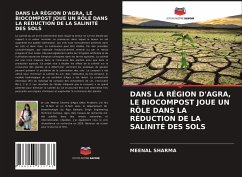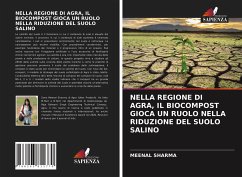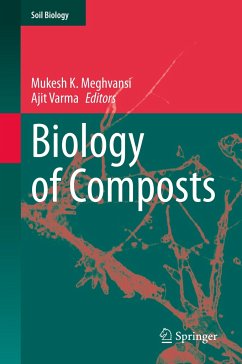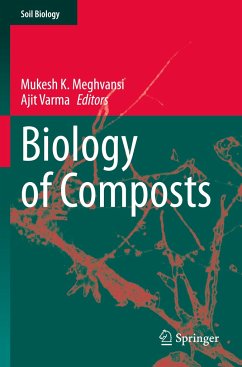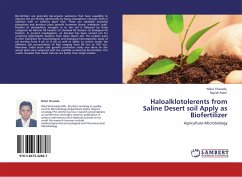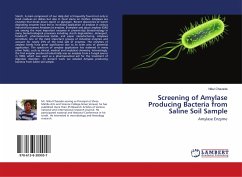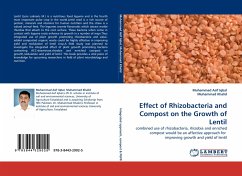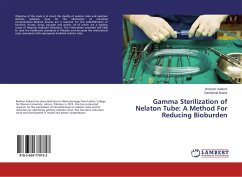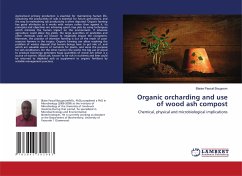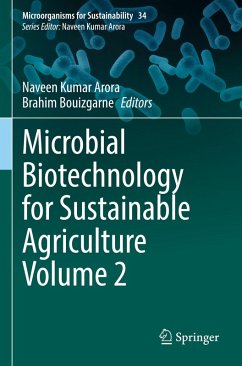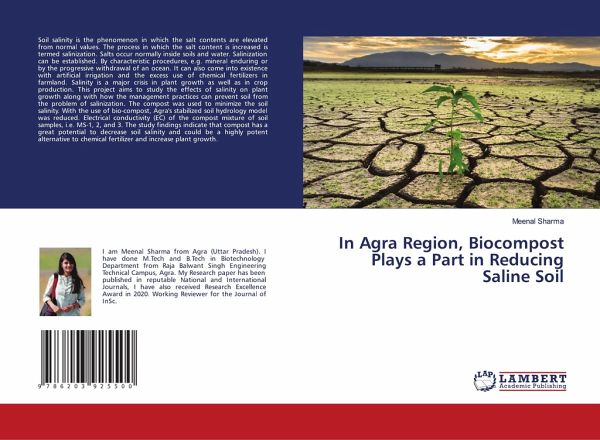
In Agra Region, Biocompost Plays a Part in Reducing Saline Soil
Versandkostenfrei!
Versandfertig in 6-10 Tagen
27,99 €
inkl. MwSt.

PAYBACK Punkte
14 °P sammeln!
Soil salinity is the phenomenon in which the salt contents are elevated from normal values. The process in which the salt content is increased is termed salinization. Salts occur normally inside soils and water. Salinization can be established. By characteristic procedures, e.g. mineral enduring or by the progressive withdrawal of an ocean. It can also come into existence with artificial irrigation and the excess use of chemical fertilizers in farmland. Salinity is a major crisis in plant growth as well as in crop production. This project aims to study the effects of salinity on plant growth a...
Soil salinity is the phenomenon in which the salt contents are elevated from normal values. The process in which the salt content is increased is termed salinization. Salts occur normally inside soils and water. Salinization can be established. By characteristic procedures, e.g. mineral enduring or by the progressive withdrawal of an ocean. It can also come into existence with artificial irrigation and the excess use of chemical fertilizers in farmland. Salinity is a major crisis in plant growth as well as in crop production. This project aims to study the effects of salinity on plant growth along with how the management practices can prevent soil from the problem of salinization. The compost was used to minimize the soil salinity. With the use of bio-compost, Agra's stabilized soil hydrology model was reduced. Electrical conductivity (EC) of the compost mixture of soil samples, i.e. MS-1, 2, and 3. The study findings indicate that compost has a great potential to decrease soil salinity and could be a highly potent alternative to chemical fertilizer and increase plant growth.



